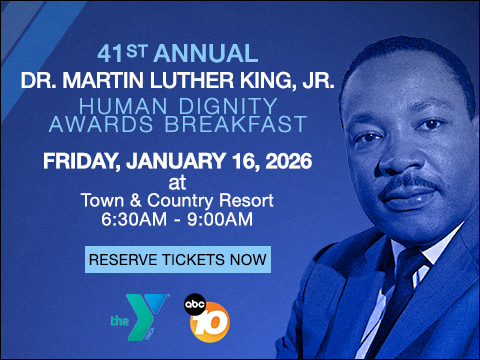SAN DIEGO (KGTV) - Finding a place to live is about to get easier for low-income San Diegans.
Right now, landlords are not required to accept tenants who receive Section 8 rental assistance. However, in August 2019, a new amendment to San Diego's source of income ordinance will prevent landlords from declining a tenant-based only on the household receiving rental assistance.
"It's safe and everything is right across the street from me," said Maria Hernandez.
That's how Maria Hernandez describes her neighborhood in Poway.
Maria uses the Section 8 voucher program to help pay the rent. She says she waited about five years for that help.
"You know without Section 8, I don't know where me or my daughter would be," Hernandez said.
Hernandez is lucky. Her landlord accepts Section 8. That's not always the case.
"I guess there's like that stereotype of people that are on Section 8, you know they think people are going to destroy their homes that people are poor who live on Section 8."
Starting August 1, 2019 landlords and property managers in the City of San Diego cannot refuse an application from a prospective tenant, charge a higher deposit, or treat them differently in any other way based on their source of income.
According to the San Diego Housing Commission, under the new ordinance, landlords and property managers cannot advertise or state a preference for certain sources of income. The tenant must still meet other requirements for tenancy and have the financial resources to pay any rental amounts not covered by the voucher/subsidy. Landlords and property managers must include any rental payments made by the voucher/subsidy when determining whether the applicant meets the minimum income requirements. Landlords and property managers may ask what an applicant's source of income is as long they do not discriminate based on that information.
"I want to give an equal treatment to every single San Diegan," said San Diego City Council President Georgette Gomez. "No matter how you're going to pay your rent, everyone should be looked at as an equal applicant."
Gomez championed the changes to the city's law. She says for some it could be life-changing, allowing renters to choose what part of town they live in not just who accepts their form of payment.
"It's not just about housing, but better jobs and just an ability to not have that stress," Gomez said.
The anti-discrimination policy is just one move making things more comfortable in San Diego.
According to SDHC, "Effective July 1, 2019, SDHC increased its payment standards for the Section 8 Housing Choice Voucher rental assistance program, which helps more than 15,000 low-income households pay their rent. Raising the "payment standard" expands rental opportunities for families by allowing them to consider housing units with higher monthly contract rents, which are paid by a combination of rental assistance from SDHC and a portion of the tenants' income."
Also, starting in August, the SDHC will launch the Landlord Partnership Program, which provides incentives to landlords to rent housing units to SDHC Section 8 Housing Choice Voucher rental assistance participants.
SDHC tells 10news it will expand the Landlord Services Team, composed of specialized staff, to provide quality customer service to landlords and support families in the move process to ensure timely lease-ups.
The agency also launched The Landlord Advisory Committee to identify best practices, programs, and incentives to attract new landlords to the Section 8 Housing Choice Voucher program.
Hernandez tells 10News she's not looking for a new place to live, but if she were ever forced to make a change, she feels more secure knowing it easier to find somewhere to live.
"It will help people put roots down into a place," Hernandez said.




